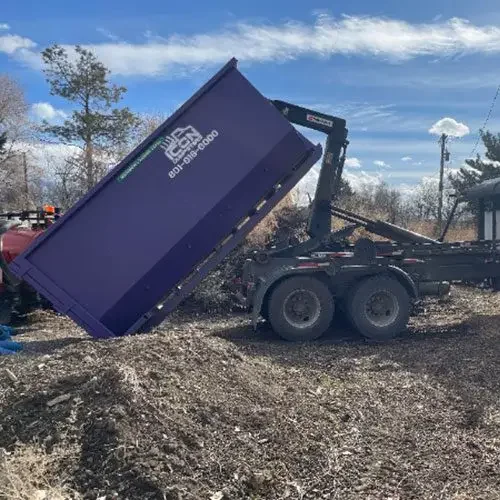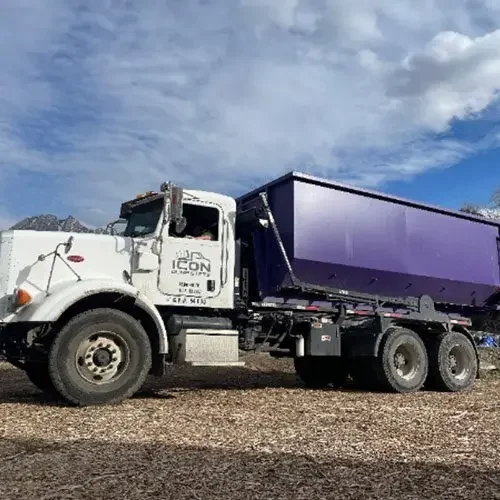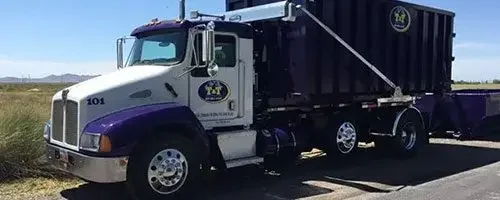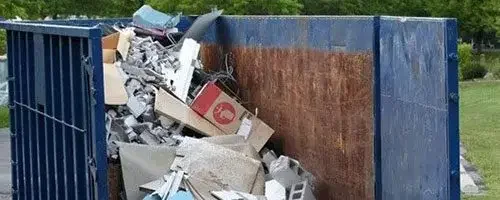Looking for guides construction waste management? This page covers the essentials right away.
A Better Dumpster Rental Experience in Utah
Same-day delivery, flat-rate pricing, and driveway-safe placement.
Table of Contents
Understanding Construction Waste
Construction waste management isn't just about getting rid of debris - it's about understanding what you're dealing with and how to handle it responsibly. After 15 years in the industry, I've seen everything from perfectly reusable materials being tossed to hazardous waste being improperly disposed of.
The construction industry generates over 600 million tons of waste annually in the US alone. That's a staggering amount that represents both a challenge and an opportunity for cost savings and environmental responsibility.
Key Takeaway
Up to 90% of construction waste can be recycled or reused, potentially saving contractors 20-30% on disposal costs while improving their environmental footprint.

Organized waste management systems keep construction sites clean and efficient
Construction waste typically falls into several categories: inert materials like concrete and brick, recyclable materials like metal and wood, and hazardous materials that require special handling. Understanding these categories is crucial for effective waste management planning.
Recycling and Reuse Strategies
Recycling construction waste isn't just good for the environment - it's good for your bottom line. I've saved thousands of dollars on projects by implementing smart recycling strategies and working with waste management companies that specialize in construction material recovery.
Recycling Success Story
On a recent commercial renovation project, we achieved 85% waste diversion through strategic sorting and partnerships with local recycling facilities, saving over $15,000 in disposal costs.

Proper sorting maximizes recycling potential and reduces disposal costs
The key to successful construction waste recycling is planning ahead and setting up proper sorting systems on-site. I always recommend checking out our construction dumpster rental guidefor tips on choosing the right containers for different types of waste.
Compliance and Regulations
Navigating construction waste regulations can be a minefield, but it's essential for avoiding costly fines and legal issues. Different jurisdictions have varying requirements, and staying compliant requires ongoing attention to changing regulations.
Compliance Alert
Many cities now require construction waste diversion rates of 50-75%. Failure to meet these requirements can result in project delays and significant fines.

Proper signage and documentation ensure compliance with waste management regulations
For comprehensive guidance on construction waste compliance, I recommend our Utah dumpster rental locations guide. It covers local requirements and helps ensure your projects stay compliant.
Waste Management Planning
Effective waste management starts long before the first piece of debris hits the ground. Planning your waste strategy during the pre-construction phase can save you thousands and prevent logistical nightmares down the road.

Strategic planning ensures efficient waste management throughout the project lifecycle
Your waste management plan should include waste characterization, recycling goals, disposal methods, and contingency plans. For home renovation projects specifically, our home renovation waste disposal guideprovides detailed planning templates.
Cost Optimization Strategies
Construction waste management costs can quickly spiral out of control if not managed properly. But with the right strategies, you can actually turn waste management into a profit center rather than a cost center.
Cost-Saving Tip
Negotiate bulk pricing with waste management companies for long-term projects. Many companies offer significant discounts for committed volume, potentially saving 15-25% on disposal costs.

Smart waste management strategies reduce costs while improving project efficiency
To get accurate cost estimates for your specific project, use our dumpster rental cost calculator. It factors in your location, project type, and waste volume to give you realistic cost projections.
Best Practices and Tips
After years of managing construction waste on projects of all sizes, I've developed a set of best practices that consistently deliver results. These aren't just theoretical concepts - they're proven strategies that work in the real world.
Pro Tip
Train your crew on proper waste sorting from day one. A well-trained team can achieve 80-90% waste diversion rates, significantly reducing disposal costs and improving project sustainability.
For commercial projects, don't miss our commercial dumpster rental business solutions guide. It covers enterprise-level waste management strategies and bulk pricing negotiations.
Conclusion
Construction waste management doesn't have to be a headache or a budget-buster. With proper planning, smart strategies, and the right partnerships, you can turn waste management into a competitive advantage for your business.
Remember, the goal isn't just compliance - it's optimization. Every dollar saved on waste disposal is a dollar that goes straight to your bottom line, and every ton of waste diverted from landfills is a step toward a more sustainable construction industry.
Quick Overview of guides construction waste management
What to expect
- Clear pricing and delivery windows tailored to your area.
- Right-size container guidance so you avoid overage fees.
- Local support from Icon Dumpsters for fast questions.
How to get started
- Confirm your project scope and pickup timeline.
- Choose a dumpster size based on debris volume.
- Schedule delivery and load within the fill line.
Recent Dumpster Projects
Real-world deliveries, cleanouts, and job sites across Utah.